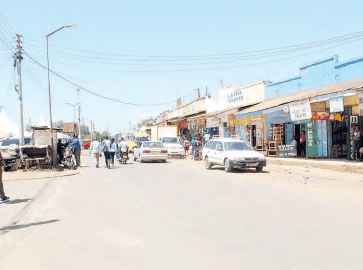Kenya will host the International Energy Agency’s World Energy Efficiency Conference on May 21 to 23.
This will be the first time Africa will be hosting the event and it is important for several reasons.
One, Kenya has an ambition to transition to energy efficiency to have affordable and sustainable energy. Second, and unfortunately, whenever issues of sustainable energy are discussed, Energy Efficiency seems to be the forgotten forlorn child.
When discussing sustainable energy, energy efficiency should be the starting point and in Kenya, the Energy and Petroleum Authority (EPRA) has taken a leading role in championing it.
The Concept of Energy Efficiency
What does it mean to be energy efficient? This implies achieving a relative reduction of energy used to produce goods or services, without affecting the quality.
Take lighting for example. A house can use 30 units of electricity per month, for lighting.
To become energy efficient, they change the lighting type, from compact fluorescent lamps to light-emitting diodes (LED). This leads to a reduction in the units consumed per month, without affecting the lighting quality. Such a household is said to be energy efficient.
The same applies to industrial, commercial and institutional energy-using equipment and systems. The net effect is the reduction in specific energy used to produce goods and services.
This reduction benefits the economy in more than one way. First, it leads to a reduction in the cost of living. Households use less money to purchase electricity while factories sell goods cheaper, due to a reduction in the cost of energy.
Energy Efficiency also reduces the strain on the national grid. The energy saved by efficient energy consumers is then supplied to other regions that were erstwhile unsupplied.
With such a relief of power demand strain on the grid, the country avoids building a new power plant to supply energy to newer customers. Therefore, Energy Efficiency intervention from the consumers builds a virtual power plant that generates “negawatts”.
Money that would have been used to build a new power plant is used in other sectors of the economy.
Active market intervention in Energy Efficiency in Kenya began in 2004 following the intervention of the government, development partners and the private sector that culminated in the development and publication of the Energy (Energy Management) Regulations 2012.
EPRA has been implementing these Regulations, which target manufacturing plants that use more than 180,000-kilowatt hours of energy per year.
The facilities are required to conduct audits on their energy uses and take mitigative measures towards reducing their energy consumption.
This is through an energy audit that identifies energy-saving measures that quantify the possible energy savings.
The Regulations require that facilities implement these measures, to save at least half of the projected energy savings.
The Regulations have since saved annual energy that could be generated by a 20 MW power plant, running 80 percent of the time, the whole year aka the 20 MW virtual power plant.
This translates to realised annual savings of 1.8 million litres of industrial diesel oil and 51 million litres of heavy fuel oil thereby saving the environment from harmful carbon emissions.
In 2016, the Authority published fresh Regulations targeting the introduction of energy efficiency requirements to be met by specific electrical appliances.
The Regulations specify minimum energy performance for the importation of motors, lighting appliances, household refrigerators and non-ducted air conditioners.
These appliances are first tested in laboratories, to ascertain their compliance with Minimum Energy Performance Standards (MEPS), before importation into the country.
The appliances spot a give-star EPRA label. The more the stars, the more efficient the appliance is. Studies are ongoing to assess the impact of these Regulations.
Compliance with Energy Management Regulations is still low, with only 56 percent of the designated facilities conducting audits and only 43 percent of those who have conducted audits implementing energy-saving measures. With full compliance, it is estimated that the country can achieve, by 2030, savings equivalent to a 100 MW power plant.
The market has responded well to the 2016 Regulations, with compliance levels for refrigerators and air conditioners recorded at over 99 percent. This directly benefits the users of these appliances.
EPRA is working with other stakeholders to improve energy efficiency in the country.
The Authority aims to increase the number of licensed energy auditors; register energy service companies, increase the number of appliances that should comply with minimum energy performance standards, publish minimum energy performance benchmarks for facilities, license energy managers and develop guidebooks on the improvement of energy efficiency in facilities.
Such measures require inputs from all stakeholders, for efficient outcomes including the consumers of the appliances, energy auditors, energy service companies, manufacturers, learning institutions and energy think tanks.
As Kenya continues to benefit from enhanced energy efficiency, all stakeholders in the energy market must participate in the processes aimed at improving energy efficiency in homes, commercial office spaces and manufacturing facilities.
Dr. Eng. Musonye is the deputy director of Energy Efficiency at EPRA









